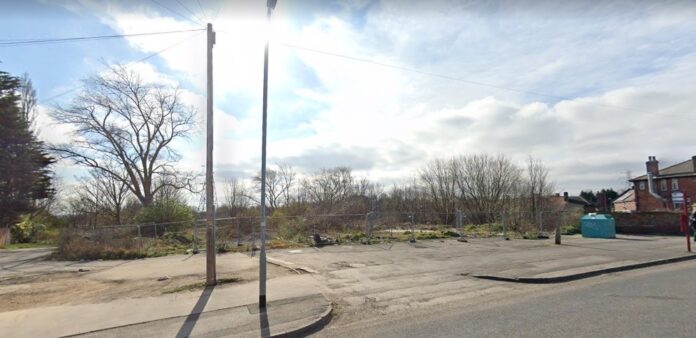Plans for a new supported housing development on the derelict site of a former pub off Cockshott Lane in Armley have been approved in principle.
The proposals were first submitted more than a year ago, with developers wanting to build 11 new three-bed houses. There would also be two blocks of supported living housing, made up of four one-bed bungalows and 13 one-bed flats with a one-bed staff flat.
The plans are on the site of the former Wyther Hotel Public House, which was demolished in 2004 and is subject to anti-social behaviour, including fly-tipping and drug dealing. The back section of the site is a former bowling green, which is also now unused and overgrown.
Members of the council’s south and west plans panel were today told by council planning officers that the site was classed as an area of ‘environmental sensitivity’.
Cllr Trish Smith (Cons, Pudsey) said:
“I hope it will remain semi-wild. There is a lot of natural bio-diversity on the site. if we can save at least some of it and create a woodland glade that would be nice.”
Cllr Colin Campbell (Lib Dem, Otley & Yeadon) asked officers about where £79,000 allocated for bio-diversity improvements as part of the application would be spent. He was told it could take up to two years to confirm a relevant site in the Armley ward.
Cllr Dawn Collins (Cons, Horsforth) said she was unhappy that some of the properties did not quite meet the council’s size and space standards. She added: “Developers keep pushing against our policies. We have written our policies for a reason and I think we should push back.”
Cllr Campbell said he was worried the development would be ‘marred’ by the fact the living space was small and that planning officers were classing storage space in the loft as living space. Planning officers noted the comments for future reference.
Cllr David Jenkins (Lab, Killingbeck and Seacroft) welcomed the use of air-sourced heating in the development.
The meeting heard residents of the supported living accommodation would typically have a range of additional needs such as physical disability, sensory impairment or autism spectrum disorders.
A planning officer’s report concluded the development of a further 11 family homes would help address problems of anti-social behaviour “which occasionally still occurs on the unoccupied site”.
It also listed “regeneration of greenspace for the local community and incoming residents”, as well as a “net gain in biodiversity achieved through combination of measures on and off site”.
Councillors approved the plans in principle and delegated final approval to the chief planning officer, subject to negotiating a raft of conditions including a £25,888 greenspace off-site contribution and the safeguarding of trees on the site.
Various forms of the plans have been in the pipeline for around two years, and had attracted six objections from local people – with some citing problems around fly tipping, the potential removal of trees and concerns around construction traffic.
The full council report and webcast of the meeting can be viewed here.

